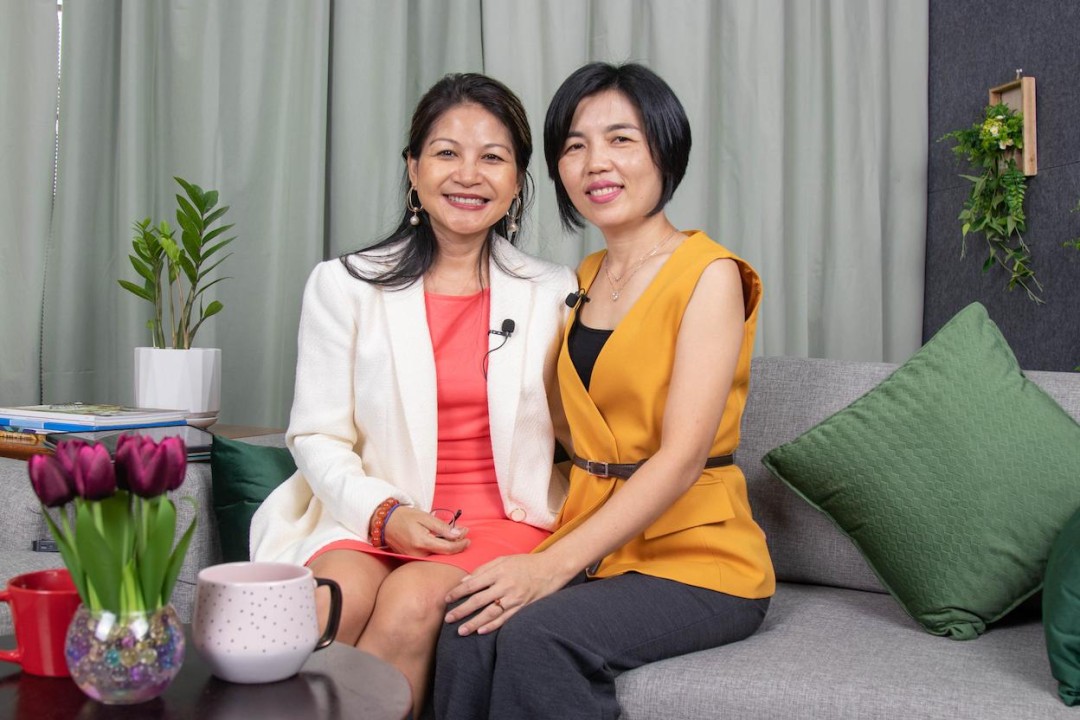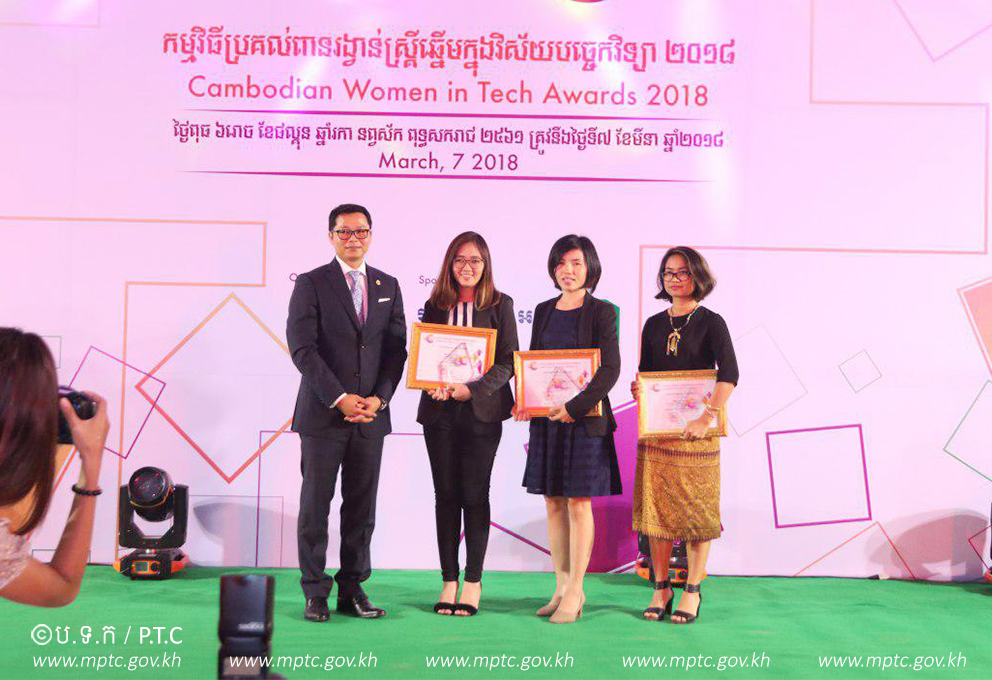
Originally from the northwestern province of Banteay Meanchey, Fat Si Em moved to Phnom Penh in 2004 to pursue higher education. Despite facing numerous setbacks as one of the very few women pursuing a career in tech in Cambodia, Si Em is now the Head of Transport Planning and Optimisation at Cellcard, working to raise connectivity across the country.
‘Empowering Growth: The Women Shaping Cambodia’, hosted by Kim Tol Tan, Founder and CEO of Grow4Growth, in partnership with B2B Cambodia, is a show which aims to celebrate the achievements and contributions of Cambodian women across various sectors.
Hailing from Preah Netr Preah district of Banteay Meanchey province, Si Em shared that she grew up in a cultural context of strong gendered traditional norms, one where women were not perceived as equal to men and were commonly encouraged to quit school and get married at an early age.
At that time, women were generally only allowed to study until grade 8 or 9 before quitting their education. They often had to stop studying to learn skills such as embroidery or tailoring, or to help the family sell goods at the market, work on the farm, or get married. I could have been one of them.
According to the Socio-Economic Survey conducted by the National Institute of Statistics, only 0.4 per cent of women, and 1.8 per cent of men in Cambodia had post-secondary education in 2004, while 43 per cent of women aged 25 and over had no education or only some education (had not completed first grade).
Witnessing the extreme exhaustion experienced by her parents from doing manual work on the farm, while still facing many debts, made Si Em yearn for a better life.
She was determined to continue her studies despite the costs involved. But financial challenges made her journey to higher education arduous. She was initially also not supported by her family, and faced discouragement from her extended relatives and neighbours. She eventually received support from her mother and managed to make her way to Phnom Penh in 2004.
New Life In Phnom Penh
Si Em shared that when she first moved to the capital, she only had knowledge of three popular university majors: banking, law, or teaching. She did not end up studying any of these subjects, however, and instead gained admission to the Institute of Technology of Cambodia (ITC) to major in Information Technology (IT) with a specialisation in programming. She also received a scholarship, which meant she only had to pay USD 100 in school fees per year.
“As a farmer’s daughter, I didn’t know much about Phnom Penh. When I applied for the entrance exam at ITC, I coincidentally passed the exam and received a scholarship,” she said.
Knowing her family's financial issues, Si Em decided to pursue this major that would cost her less.
“I didn’t want my parents to spend a lot of money supporting my education, which is why I studied IT. You could say that this was by chance,” she stressed.
From Her First Job To More Than 15 Years In The Telecom Industry
In 2009, Si Em landed her first job at Huawei Technology, working in the Network Operations Centre (NOC) responsible for 24/7 monitoring of servers and alerting the back office of any issues with the machines. She began by working 12-hour night and day shifts before being promoted to regular working hours.
“I was first accepted as an intern there, but I asked them for a job because I was in need of money. It all came down to my financial issues. My goal then was to earn money to support myself first; I didn’t want to create any difficulties for my family,” shared Si Em.

Later, in 2012, she joined Cellcard, one of Cambodia’s largest telecom companies, where she was promoted to a managerial role, and then to her current role as the Head of Transport Planning and Optimisation, focusing on the planning of telecom network systems.
A few years later, Si Em received the ‘Cambodian Woman ICT Engineer Award’ as part of the Women in Tech Awards 2018, hosted by the Ministry of Posts and Telecommunications.
Watch Part 2 of our interview with Fat Si Em:
Coping With Challenges In A Male-Dominated Field
Despite being promoted in her roles, Si Em emphasised that being recognised for her good performance has never been easy.
If you ask me what difficulties I face, I can say there are many, because I am one of the very few women in a male-dominated job sector, so many people ask me, ‘You are a woman, why are you in this job?
Si Em added that her line of work can be quite tiring, time-consuming, and require a lot of flexibility and deep thinking. There are times when she is required to be present during the day, but other times when she has to come in at night. She said this can contribute to a sense of insecurity felt as a woman going outside at night or to quiet places.
“But what I always tell myself is that when people say we cannot do something, we must show them we can. Even with little success, we must try to do it to the best of our ability – work hard, pay attention, and do things with clarity,” she said.
“It’s not that I haven’t experienced failure,” she added. “There are some people who comment negatively on my choice of technical major. I have almost given up many times, but I always think of my mother, and I tell myself to see a way through the obstacles forward, not backward. Don’t use obstacles in life as a reason to give up, because the real obstacle to life only comes at death."

Si Em explained that when she first started her job, no one believed she could succeed in the field because her role had never been given to a woman before. Today, however, she continues to work in a senior role in the industry, and has seen through the development of Cambodia’s cellular technology networks, from 2G to 4G, and now even 5G.
On how she managed to achieve success in her career, Si Em underlined that besides having technical or hard skills required in telecom or IT, she has found that listening and taking courage in sharing ideas are some of the best skills to have.
“Listen more than you speak, and dare to share your ideas. Whatever the outcome, have courage to speak, take action, and take full responsibility.”
Education For Oneself And Society
More than anything, Si Em advises women to pursue education, as she wholeheartedly believes it can help them find themselves, navigate problems, and contribute to societal development.
“When you have wisdom and motivation, you play an important role in your family, and you can educate your children well too. A good society is built on educated families, for which women play an important role,” she concluded.